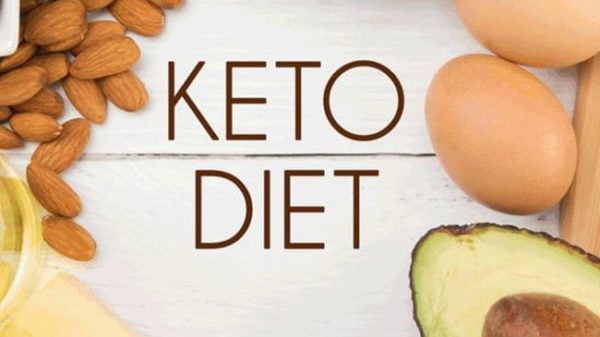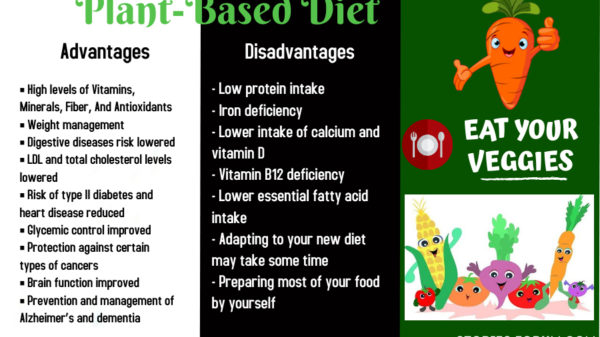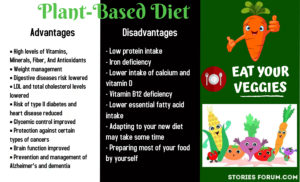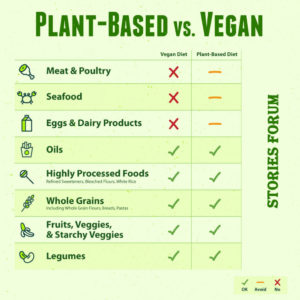What is a Vegan Diet?
A vegan diet is one which is comprised of eating only plants. Vegans do not eat any animal related foods for instance meat, dairy, eggs etc. They don’t even consume honey. They eat veggies, fruits, legumes etc. A vegan diet is in many ways similar to a plant-based diet but is also different in some ways.
Advantages of Going Vegan:
- It can help you lose excess weight:
Numerous people are turning to vegan diets in order to reduce excess weight and fat on their bodies. Vegan diets have a natural tendency to reduce your weight by reducing your calorie intake. This makes them effective in assisting weight loss without trying very hard to reduce the calories being consumed. There are many factors that affect weight loss, including age, height, current weight, diet, physical activity levels, metabolic health and other medical issues. You cannot control all the above mentioned factors but at least you can control your diet and exercise well.
2. It lowers blood sugar levels and improves kidney function:
Turning to vegan diet can have beneficial implications on Type 2 Diabetes Patients and people with a declining kidney function. Vegans tend to have higher insulin sensitivity, lower blood sugar levels and up to a 78% lower risk of developing type 2 diabetes. Various studies report that a vegan diet may be able to provide complete relief of systemic distal polyneuropathy symptoms which is a condition in diabetics that causes sharp, burning pain. Going vegan may also prevent any further medical issues from developing in the vegan’s body.
- A vegan diet has an abundance of certain nutrients:
When switching to a vegan diet, you subtract all animal and animal related foods from your diet as well as your life. This will automatically lead you to rely more heavily on other foods. In the case of a whole-foods vegan diet, substitutions are in the form of whole grains, fruits, vegetables, beans, peas, nuts and seeds. These foods are rich in beneficial nutrients and therefore, increase the daily intake of certain nutrients which prove to be advantageous for the body. A number of studies have reported that vegan diets tend to provide more fiber, antioxidants and beneficial plant compounds. They are also rich in potassium, magnesium, folate and vitamins A, C and E.
- Vegan diets are linked to a lower risk of heart disease:
Eating fresh fruits, vegetables, legumes and fiber leads to a lower risk of heart disease. All of these are eaten in wholesome amounts in well-planned vegan diets. Studies state that vegans may benefit from up to a 75% lower risk of developing high blood pressure. Furthermore, they have 42% less chances of dying from a heart disease. This may be particularly beneficial to heart health because reducing high blood pressure, cholesterol and blood sugar levels may reduce the risk of heart disease by as much as 46%. Vegan diets reduce the risk factors that contribute to heart diseases.
- Vegan diet may safeguard against certain cancers:
As stated by the World Health Organization, about one-third of all cancers can be prevented by factors within your control which includes your diet. For example, eating legumes regularly may reduce your risk of colorectal cancer by about 9–18%. Moreover, vegans may benefit from a 15% lower risk of developing or dying from cancer. There are certain nutrients in soy products which offer protection against breast cancer. Another reason may be because vegan diets eliminate smoked or processed meats and meats cooked at high temperatures, which are thought to promote certain types of cancers. Additionally, vegans don’t consume dairy products, which some studies show may slightly increase the risk of prostate cancer.
- A Vegan diet can reduce pain from Arthritis:
Some studies have reported that a vegan diet has positive effects on people with different types of arthritis. Arthritis is the swelling of one or more of your joints. The main symptoms of arthritis are joint pain and stiffness, which typically worsen with age. Vegan diets based on probiotic rich foods can help in significantly decreasing the symptoms of arthritis.
Disadvantages Associated with a Vegan Diet:
Along with the above mentioned advantages, there are certain disadvantages associated with vegan diets as well. They include;
- A weakened immune system
- A higher risk of experiencing bone fractures
- High blood pressure
- Rashes
- Fatigue
Bottom Line:
Going vegan can help you in a variety of ways as you tend to consume nutrient rich foods and it keeps you away from numerous kinds of diseases and cancers. Although, it entails some disadvantages as well. Whatever you eat, Always choose to eat healthy!









